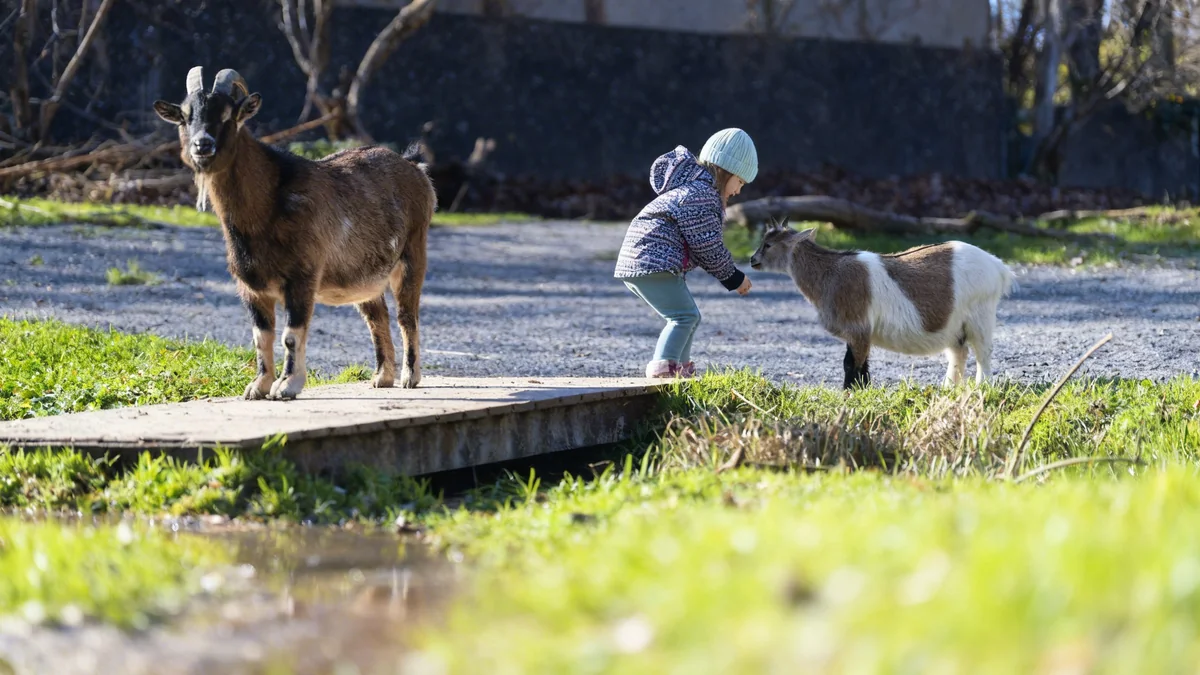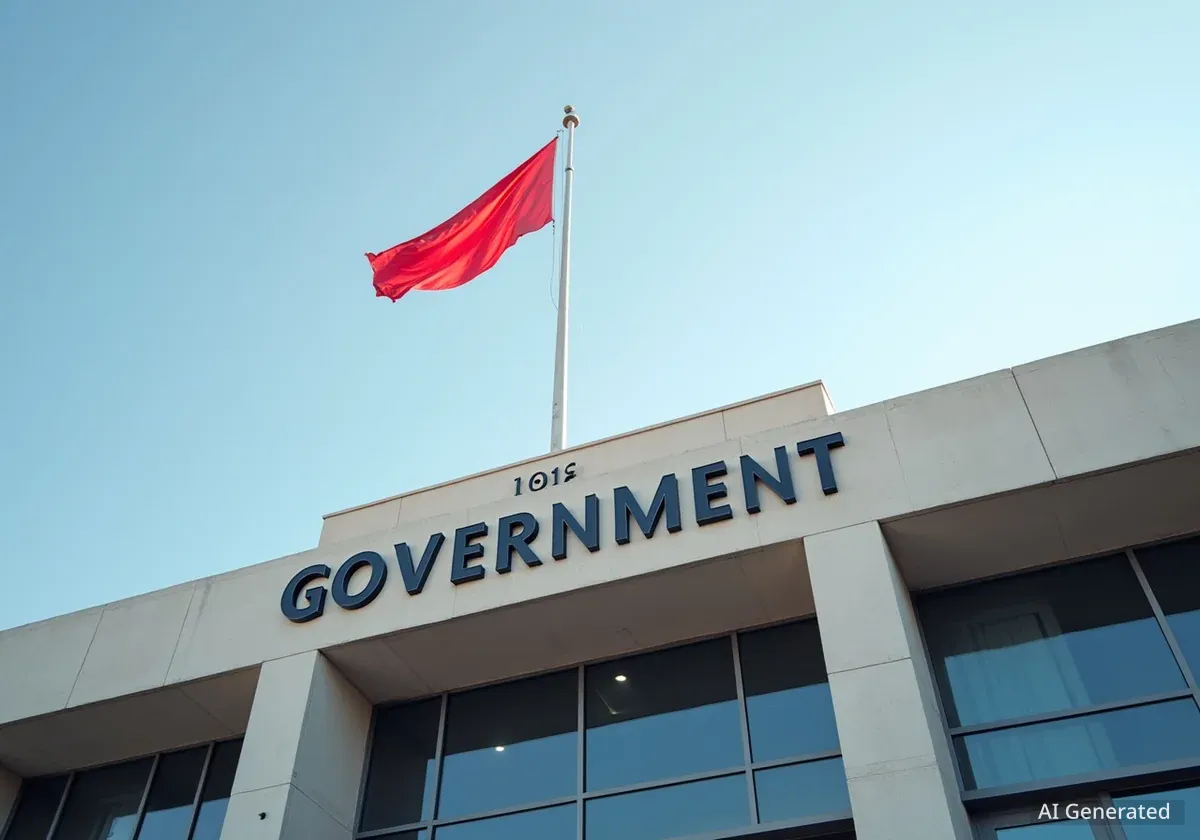Hundreds of people gathered in front of the Federal Palace in Bern on Saturday to protest the recent decision by the Federal Office for the Environment (FOEN) to authorize the culling of wolves. Demonstrators called for an immediate end to what they described as a "wolf massacre."
Key Takeaways
- Hundreds protested wolf culling in Bern.
- Demonstrators wore red and brought dogs.
- Protest organized by the Committee Against Wolf Culls.
- Swiss Animal Protection (STS) criticized FOEN's decision.
- 21 wolf packs are targeted for culling by FOEN.
Demonstrators Demand Halt to Wolf Culls
The protest on Saturday saw a large turnout. Many participants wore red clothing. Several demonstrators brought their dogs to the event, a reporter from the Keystone-SDA news agency observed. Speakers at the rally demanded a halt to wolf culls. Drumming performances were also part of the event.
The national demonstration was organized by the "Committee Against Wolf Culls." This committee received support from several organizations. These included WildtierSchutz Schweiz (Wildlife Protection Switzerland) and Tier im Fokus (Animal in Focus).
Key Fact
The Federal Office for the Environment (FOEN) recently approved wolf culls in 21 wolf packs across Switzerland.
Committee Alleges "Cruel and Undemocratic Game"
The organizing committee stated that a "cruel and undemocratic game" is being played in Switzerland. They claim this is happening "under the guise of management." The committee specifically criticized the practice of removing wolf pups almost arbitrarily. They referred to these actions as a "wolf massacre."
This public outcry follows a recent decision that has sparked significant debate. The methods and ethical implications of current wolf management strategies are at the center of this discussion.
"Under the cloak of management, a cruel and undemocratic game is being played in Switzerland. Wolf pups are being removed almost arbitrarily; it is a wolf massacre."
– Committee Against Wolf Culls
Swiss Animal Protection Expresses Deep Concern
Ahead of Saturday's demonstration, the Swiss Animal Protection (STS) issued a public statement on Friday. The STS expressed deep dismay regarding the Federal Office for the Environment's latest decision. This decision authorizes the culling of wolves in 21 packs.
The STS emphasized that this measure is not a sustainable solution. They also warned of significant dangers. These dangers could affect the stability of wolf packs. They could also impact the protection of farm animals in Switzerland.
Background on Wolf Management
Wolf management in Switzerland is a complex issue. It balances wildlife conservation with the protection of livestock. The rising wolf population has led to increased conflicts with agricultural interests. This has prompted authorities to implement culling measures under specific regulations. These regulations aim to manage the wolf population and reduce livestock depredation.
Impact on Wolf Pack Stability and Livestock Protection
The STS highlighted that the approved culling measures could destabilize wolf packs. Removing individual wolves, especially leaders or key members, can disrupt the social structure of a pack. This disruption might lead to unforeseen consequences for the remaining wolves. It could also affect their hunting behavior.
Furthermore, the STS argued that the measures might not effectively protect farm animals. Dispersed wolves from disrupted packs could potentially increase conflicts with livestock. This challenges the stated goal of the culling program.
- Potential for instability: Culling can break up established pack structures.
- Behavioral changes: Remaining wolves may alter their hunting patterns.
- Increased conflict risk: Dispersed wolves might encounter livestock more often.
The Role of the Federal Office for the Environment
The Federal Office for the Environment (FOEN) is responsible for implementing national environmental policies. This includes wildlife management. The recent decision to authorize wolf culls reflects the government's attempt to address concerns from the agricultural sector. These concerns relate to wolf predation on livestock. The FOEN operates under specific legal frameworks to manage protected species like wolves.
According to FOEN, these measures are part of a broader management strategy. This strategy aims to balance the needs of wildlife with those of local communities and farmers. However, animal welfare organizations dispute the effectiveness and ethical basis of these actions.
Public Debate on Wildlife Management Intensifies
The protest in Bern underscores a growing public debate. This debate focuses on wildlife management practices in Switzerland. Animal welfare groups advocate for non-lethal methods. These include better livestock protection measures and deterrents. Farmers and some local authorities, however, often call for more direct intervention, such as culling, to protect their livelihoods.
This ongoing discussion involves various stakeholders. These include government agencies, environmental organizations, farmers, and the general public. Finding a consensus remains a significant challenge. The differing viewpoints highlight the complexity of managing protected species in a human-dominated landscape.
Wolf Population Data
Switzerland's wolf population has been steadily increasing over the past decade. This growth has led to a rise in reported cases of livestock depredation. Exact numbers vary, but official data shows a clear trend of expansion for wolf territories and pack numbers.
The Committee Against Wolf Culls plans further actions. They aim to raise awareness and pressure authorities. Their goal is to encourage a shift towards more humane and sustainable wolf management policies. The debate is expected to continue as the culling measures proceed.




